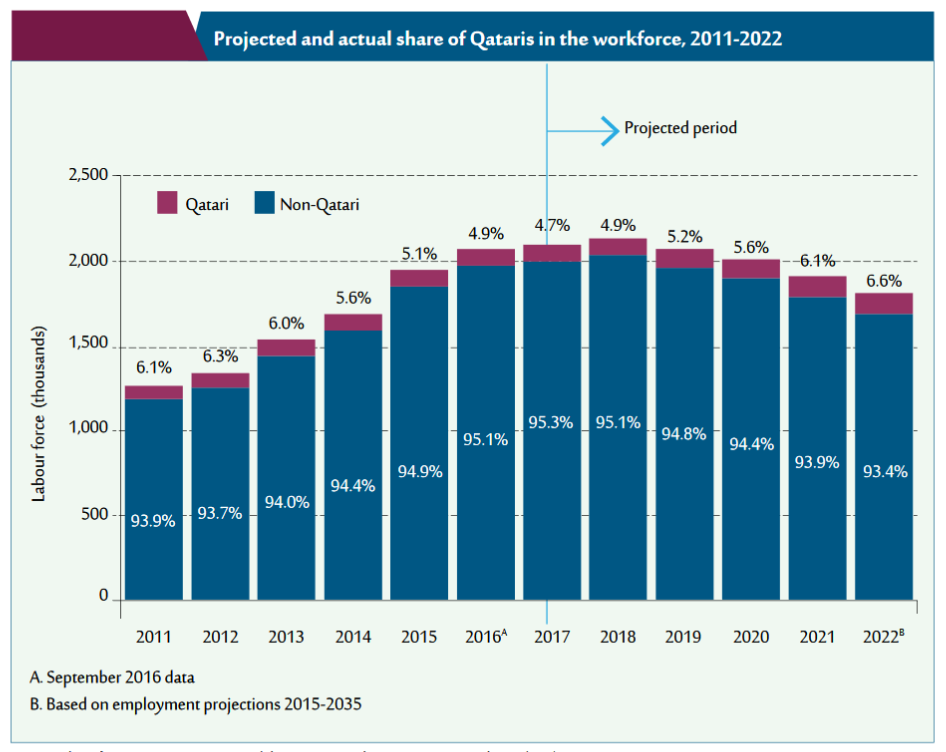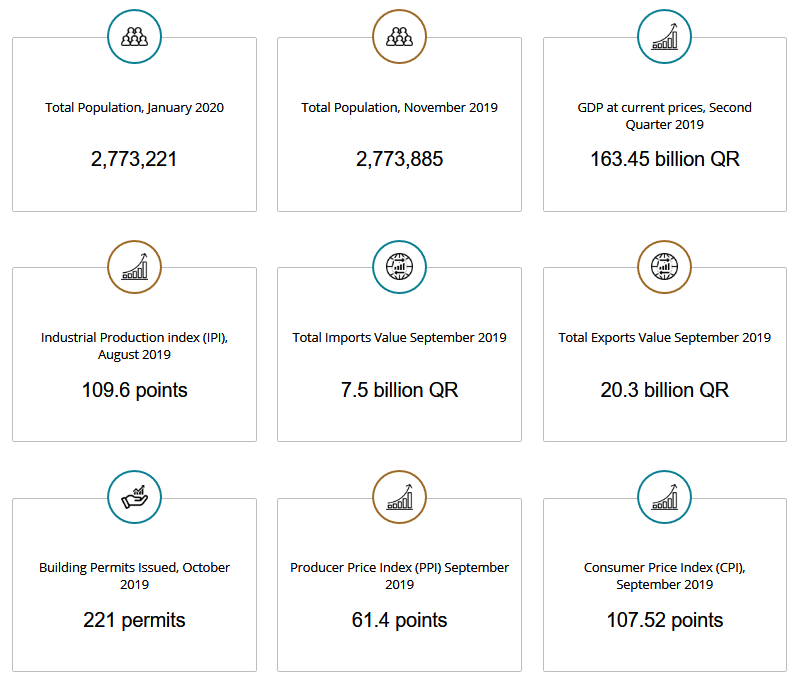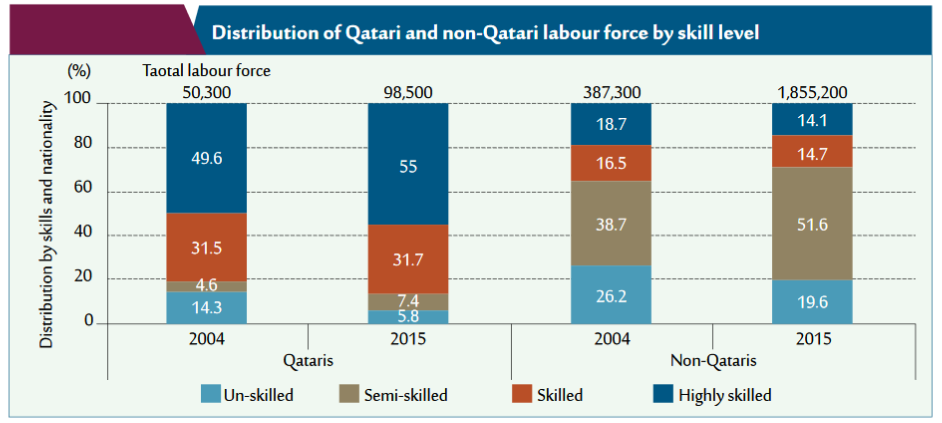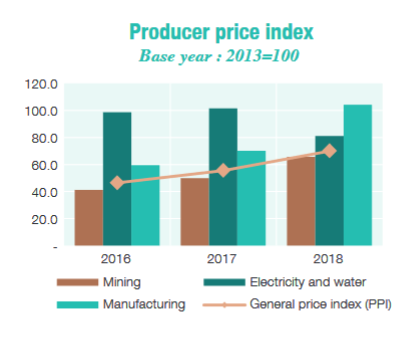According to Qatar National Vision 2030, the country is oriented toward active development in such spheres as economic progress, social progress, the development of human capital, and environmental development. This strategy, which was initially promoted by His Highness the Father Emir Sheikh Hamad Bin Khalifa Al-Thani and currently supported by His Highness Sheikh Tamim bin Hamad Al Thani, explains the appearing need for improving Qataris’ education and for the undergraduate program – Bachelor in HRM and Project Management. The specifics of the country’s need and the market need for this program should be supported by statistics and governmental documents.
The Country’s Need for the Program and Bachelors in HRM and Project Management
Qatar National Vision 2030 provides a step-by-step program for developing Qatar into a prosperous country in a decade in the context of the National Development Strategy. In this strategy, much attention should be paid to economic, social, and educational perspectives for the country’s further progress (Planning and Statistics Authority). Thus, the country’s need for specialists receiving a degree in the spheres of HRM and Project Management can be explained regarding the fact that Qatar’s economy will be reformed to attract more investments and facilitate competition in sectors. This goal is associated with expanding a network of enterprises, including international ones, in the country with a focus on applying innovative technologies, attracting more resources, and supporting the private sector (see fig. 1). As a result, qualified project managers will be required to contribute to existing and new companies’ competitive advantage. From this perspective, more positions for project managers and human resource managers will be opened in the nearest future.

From the perspective of social and human development, Qatar is oriented toward preserving the country’s national heritage in the context of corporate culture, promoting equal employment opportunities for women, and intensifying the cultural exchange in the region. As a result, more specialists in HRM will be needed in the nearest future to manage workplaces based on the principles of equality and tolerance and address the necessity of managing diverse workforce. Thus, the promotion of the undergraduate program, Bachelor in HRM and Project Management, is correlated with the principles from Qatar National Vision 2030. Accordingly, Qatar should have “a world-class educational system that equips citizens to achieve their aspirations and to meet the needs of Qatar’s society, including … high quality educational and training opportunities appropriate to each individual’s aspirations and abilities” (Planning and Statistics Authority). It is necessary to have the undergraduate program that can help to cover the need in high-quality HR and project managers addressing the requirement of supporting the educated population of Qatar.
In addition, Qatar National Vision 2030 also includes statements regarding the necessity of making the diverse workforce in the country more motivated. One of the principles is the provision of “High quality training opportunities for all citizens, corresponding to their ambitions and abilities” (Planning and Statistics Authority). Thus, the discussed undergraduate program can effectively address the need for highly qualified specialists in such areas as human resource management and project management. The detailed examination of Qatar National Vision 2030 and the associated National Development Strategy indicates that there is a clear country’s need for the discussed undergraduate program (Bachelor in HRM and Project Management) in order to guarantee that more professionals from such fields as HRM and Project Management will graduate in Qatar annually. In the future, these graduates will become actively involved in business spheres.
The Market’s Need for the Program and Bachelors in HRM and Project Management
The labor market of Qatar is characterized by the presence of many international organizations and local organizations where both Qataris and expatriates are employed. A great diversity of workforce in Qatar is explained by the analysis of the country’s demographic statistics (see fig. 2). The percentage of expatriates is significantly higher, as well as their representation in the workplace, and this aspect influences the development of policies that are primarily oriented toward nationalization in different spheres (Qatarization) (Planning and Statistics Authority). This market situation creates a need for professional HR managers and project managers among Qataris to work with other nationals in different types of organizations. Additionally, there is a need for professionals who can easily manage diverse employees and achieve cooperation between the representatives of different cultures. Therefore, the undergraduate program for receiving the degree of Bachelor in HRM and Project Management can be highly helpful in this context.

Another pillar to pay attention to discussing the market need for specialists with the degree in HRM and Project Management in Qatar is the urban and economic growth in the country. Qatar’s current GDP is 163.45 billion QR, and its growth is expected to continue in the 2020s, along with the Industrial Production Index and Total Exports Value (see fig. 3) because of focusing on the modernization of existing companies and the appearance of new enterprises in the spheres of energy and construction (Planning and Statistics Authority). As a result, there is a market need for highly skilled specialists in HRM, who can effectively recruit and manage employees, and a need for professionals in Project Management, who can organize the work of the staff to increase productivity (see fig. 4). The focus should be on the fact that modern enterprises are interested in specialists with high levels of skills contributing to increases in performance and productivity to optimize the work on projects.


The market need in Qatar is also characterized by decreasing the country’s dependence on different companies related to hydrocarbon industries, increasing competitiveness, and promoting entrepreneurship. Actively developing industries in Qatar that require well-educated labor force include, according to the data on Producer Price Index, mining and manufacturing industries (see fig. 5). From this perspective, it is possible to state that the modern labor and economic market of Qatar develops according to the principles of the knowledge-based economy and requires skillful human resources (Planning and Statistics Authority). In this context, much attention should be paid to providing more educational opportunities for Qataris and expatriates in the country in order to cover positions in modern companies’ departments.

The undergraduate program oriented toward receiving the degree of Bachelor in HRM and Project Management contributes to increasing the number of qualified professionals who will know how to manage employees effectively in the context of Qatarization policies. These specialists also know how to balance the number of expatriates and nationals in a company and how to motivate them to be productive and efficient. Furthermore, skills in project management are also important in the modern economic Qatari market because project management techniques help employees achieve higher results and complete all tasks efficiently.
The Need for HRM Education in Qatar
Qatarization is the initiative which is promoted by His Highness Sheikh Tamim bin Hamad Al Thani for the purpose of increasing the number of Qatari citizens who work in different sectors and organizations in contrast to expatriates. In the content of Qatar National Vision 2030, the focus on Qatarization is described as one of the primary goals in the area of human development (Planning and Statistics Authority). The reason is that it is necessary to support Qataris in public and private organizations, to promote their employment, and well-being. It is possible to effectively achieve the goals of Qatarization when supporting Qatari citizens in educational institutions and during recruitment procedures.
In the sphere of education, it is expected that the undergraduate program to obtain the degree of Bachelor in HRM and Project Management can be regarded as attractive to Qataris. Furthermore, in the sphere of employment, managers in organizations will become more oriented toward hiring nationals having degrees in human resource management because of their potential ability to work with diverse teams and organize positive conditions for the personnel to develop in the context of Qatar’s focus on modernization. From this perspective, more professional HR managers and project managers are required to be graduated in Qatar, and the undergraduate program (HRM) can have significant benefits for the market.
It is necessary to educate and train high-quality HR specialists for working in a specific national context of Qatar in order to guarantee that the goals of Qatar National Vision 2030 can be easily addressed and contribute to the competitive advantage of a particular firm. Thus, the focus should be on skillful HR managers who received knowledge participating in the undergraduate program and obtaining a Bachelor’s degree (Planning and Statistics Authority). In this case, it is possible to expect that young HR managers will be able to promote governmental regulations and initiatives in the context of Qatarization in their organizations, maintain the balance in managing nationals and expatriates, and support positive labor negotiations.
Conclusion
The analysis of recent data and statistics presented on the website of the Planning and Statistics Authority of Qatar indicates that there is an obvious country need for specialists with such degrees as Bachelor in HRM and Project Management. The reason is that the workforce in Qatar is highly diverse, and employees of companies operating in the country represent different cultures. This situation creates a challenge for HR managers that should be educated to work effectively in this specific national environment. Additionally, there is also a market need because many companies in different developing industries in public and private sectors are opened in Qatar. As a result, more positions for HR managers and project managers are created now and will be created in the future. These aspects supported by recent statistics on the issue seem to emphasize the need for the undergraduate program to receive a degree of Bachelor in HRM and Project Management.
Work Cited
Planning and Statistics Authority. Planning and Statistics Authority of Qatar, 2020, Web.
